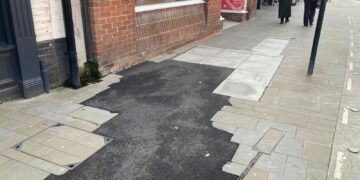Deciding to install Solar panels can be a big decision, and with many unanswered questions it can leave you feeling overwhelmed – How does it work? What can I expect on the day? Is it worth it? Who does the installation? The list goes on, and on!
Since we have years of experience in renewable energy technology, we have put together a guide to help you understand solar energy and hopefully, make your decision easier.
So, how does solar power work?
Installing solar panels generates free electricity for your home and can dramatically lower your household bills. Using solar power also protects you from energy company price rises in the future. But how do they generate electricity for the home?
(Referring to the diagram) The solar panels themselves consist of solar PV (photo-voltaic) cells made from several layers of semi-conducting material. When light shines onto these cells, it generates an electrical field. This direct current (DC) from the solar panels flows through an inverter, which converts the power to alternating current (AC). The AC current then goes into the main fuse box of the home to provide free electricity to power the lights and household appliances.
Ensuring the best results
Solar panel technology has advanced a lot in the last few years. High quality solar arrays can now generate power on cloudy days, when there is very little or even no sunlight.
However, electricity generation will depend on some light being available, so when it gets dark the system will go on stand-by. The home will then switch onto using the national grid as a source of energy. When we survey a home, we consider the size and shape of the property, its roof direction, roof pitch, and its position in relation to the sun. We also check out the surroundings, including any possible shadows from nearby trees or buildings.
All of this helps to ensure that you will get the most from a solar PV system, even on overcast days. Estimates show that a typical household could reduce its electricity bills from between £210 to £514 a year* by installing solar.
Benefits of solar energy
Once installed, solar PV panels are virtually maintenance-free. The panels will need only an occasional clean to stay working at their best.
As well as giving big savings on household bills, it’s good to remember that using solar power means you’re switching to a clean and inexhaustible source of energy. Your free electricity will help to reduce carbon emissions, and supports the global drive towards Net Zero.
Professional installation is essential
It is important you choose a company that has experience within this field, and the correct accreditations to go with it. InstaGroup has years of experience in renewable energy technology. We install high-performing MCS-accredited solar PV panels for homes across the south of England.
Our solar engineers can carry out a thorough no-obligation survey at your property which will tell you the potential ‘yield’ from a solar panel installation. If you decide to go ahead, our technicians will focus on designing and commissioning a system that generates maximum electricity for your home.
The cost of installing solar PV will vary, depending on the size and the needs of your property. If you’d like to know more about solar power get in touch, or call our friendly team on 0800 526 023.
*Figure based on Energy Saving Trust estimates. A typical household with a 4.2 kilowatt-peak system could take between £210–£514 a year off bills. Calculations made using October 2022 price cap rates. See www.moneysavingexpert.com/utilities/free-solar-panels



















































